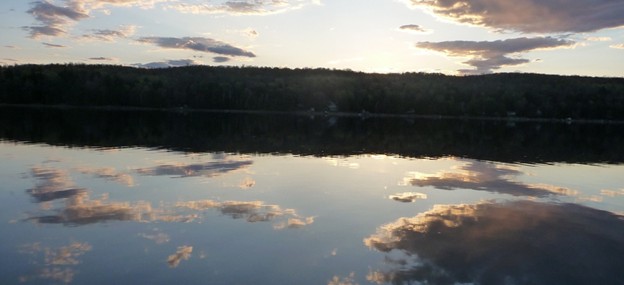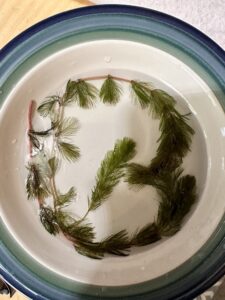
Invasive Species Identified on Lake Lucerne
To all Lake Lucerne Property Owners and those who enjoy Lake Lucerne.
Below is a copy of the official email from the Wisconsin DNR regarding the presence of Eurasian Water Milfoil.
Received – 8/6/2024
Dear Lake Lucerne Stakeholders,
This is a routine email to let you know that an aquatic invasive species was found in Lake Lucerne (WBIC 396500, Forest Co.). Eurasian watermilfoil is a submerged aquatic plant native to Europe, Asia and northern Africa. It was first reported in the United States in the 1940s and in Wisconsin in the 1960s. It is an NR40 Restricted Species meaning it is fairly common throughout the state with over 650 documents inland lakes and flowages in Wisconsin. Management is optional or in some instances, not recommended as it has the potential to do more harm than good depending on many factors like density, distribution, etc. The way that is determined is through monitoring and careful planning. For more information on this species, please see the attached article and visit the Eurasian watermilfoil webpage: Eurasian watermilfoil |(Myriophyllum spicatum) | Wisconsin DNR
Myself, along with the Lake Biologist/Aquatic Plant Management Coordinator (Scott Van Egeren) and Local AIS Coordinator (Derek Thorn) will work with the Lake Association leadership to determine next steps as it relates to potential grant funding focused on assessment, planning, and/or prevention efforts, if the Association is interested.
Reporting invasive species is a first step in containing their spread. Maintaining and restoring our waters and landscapes can reduce the impacts of invasive species. Want to help in the effort?
Here are some ideas of what you can do:
Follow the law and practice the following each time you interact with surface water:
INSPECT your boat, trailer, and equipment.
REMOVE any attached aquatic plants or animals (before launching, after loading and before transporting on a public highway).
DRAIN all water from boats, motors and all equipment.
NEVER MOVE live fish away from a waterbody.
DISPOSE of unwanted bait in the trash.
BUY minnows from a Wisconsin bait dealer. Use leftover minnows only under certain conditions*
Buy native plants
Restore your shoreline – check out Healthy Lakes and Rivers website for financial and technical assistance
Become a Clean Boats Clean Waters volunteer – contact your Local AIS Coordinator for training opportunities(Derek Thorn, )
Amanda Smith
Pronouns: she, her, hers
Northeast Aquatic Invasive Species (AIS) Biologist
Office of Great Waters/Environmental Management Wisconsin Department of Natural Resources